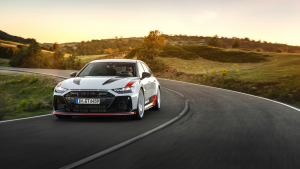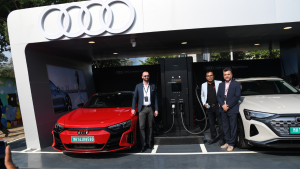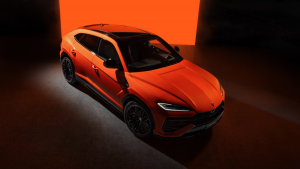Interview: Rahil Ansari on Audi India's future, industry trends and new products
OVERDRIVE editor, Bertrand D'Souza caught up with Rahil Ansari, head of Audi India, over a game of football. Some great on-field action aside, here's Ansari speaking of Audi's plans for India and new products, given the new trends sweeping through the industry currently.

Bertrand D'Souza: In 2018, market sentiments and automotive sales numbers started declining gradually, and that trend has continued and has now increased considerably. How is Audi going to fare in this environment?
Rahil Ansari: As you said, 2018 was tough with the financial crisis and credit crunch happening. It's especially difficult with the luxury segment given the high taxation. That is something that remains a matter of concern, especially from a sustainability point of view.
But having said that, we are confident things will improve. The second half of 2019 should be more positive. We have some new car launches lined up too.
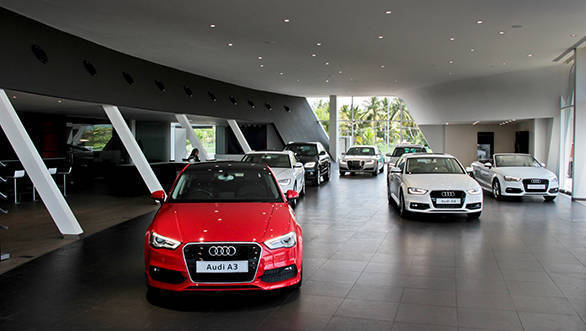
BD: What are the steps you are taking then at this moment to change your status quo. I know that you had a dealer crunch last year? Has that been rectified? What are the other steps you are taking as Audi India, to correct your present situation?
RA: You are referring to one parameter, sales. We look at a lot of other parameters. For us, it is crucial that we have a sustainable case for our dealer partners. We have a new dealer in the NCR, but it isn't just the sales game for us. At the end of the day, we and our dealer partners have to earn money. We have to make sure there's a sustainable case for everyone.
That also refers to products, we could, theoretically, launch a lot of products. But then we have to do justice to it. As an example, if we launch a niche product, it will have to be advertised, it will have to be marketed, be in showrooms. That means there has to be stock or demo cars with dealers, which leads to a lot of capital intensive business. We aren't going to launch too many niche cars because of this. We will, of course, have products like the R8. They are brand builders. But a car like the TT, we will discontinue. We will not have a TT anymore, its something in between and there's no need for a car like this. We will have different cars in India, but it has to make business sense. For the moment however, the taxes aren't very favourable, which means we have to restrict this at the moment. If taxes are reduced, we can look at a more sustainable case, and even into locally assembled products.
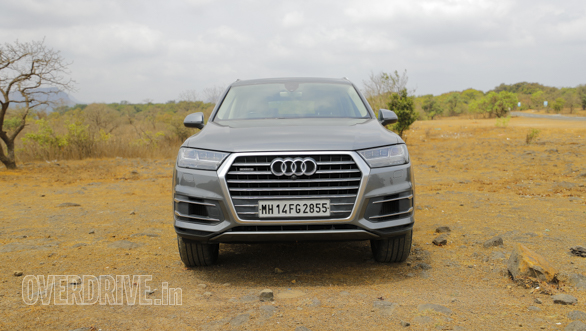
BD: So what would you recommend? Yes, taxation is a challenge you've cited often in the past. But what is the solution you would look at, or advise to policy makers? What is the compromise that needs to be reached between the government and carmakers?
RA: Lets look at the compromise part in retrospect. We had the GST in July and nine weeks after that there was an increase in cess. Six months later there was Union Budget change which also led to an increase in prices. First of all, we need a sustainable policy. Which means a few years down the line we don't have any changes. The business case for a product is not done on a yearly basis, but on a longer term.
The other thing to look at is a reduction in taxes. That will also impact the overall spirit and overall economy of the luxury segment in a positive manner. Why? We will sell more cars. If you sell more cars, you will have more dealerships coming up, which means there's a large investment you will have. There will be more manpower requirement in the dealerships, and if there is good business for us selling more cars, we will also invest in new products. And in a win-win situation, there will be more tax revenue in the long run.
If there is a trial, say a 10 per cent reduction in taxes for one to three years, you will see the impact.
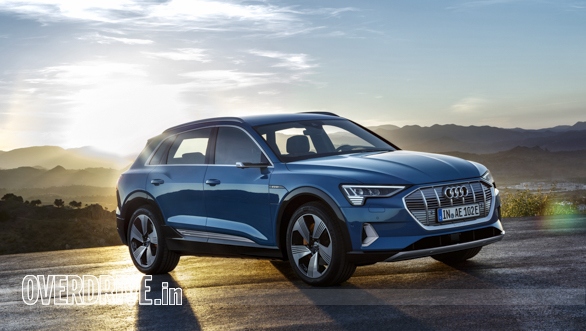
BD: Two years ago you said you will get the E-Tron to India. I'm starting with that because that's where the buzz is, EVs. I definitely see a lot of positive consumer sentiment here. Is the infrastructure in place for Audi to bring the E-tron?
RA: I think the infrastructure is not there yet. Some good progress has happened over the past year in this regard though we are not there yet. This means we won't be launching the E-Tron. From Audi India perspective, we are ready and have trained manpower. We are ready to prepare the dealers for this. But we will only launch when everything is ready to be rolled out. Launching the car is easy but we have a responsibility to the customer as well. I'm sure the infrastructure growth needed is coming, We will look to get the car here by 2020 or even earlier.
BD: This will have to have the government, private players and the manufacturers coming together to build that infrastructure. What kind of consensus should there be between all stakeholders?
RA: I think overall with FAME2, that's basically what happened. On the other hand, I also think that we will have to work independently. You will have a service provider, making sure you have a home installation. Let's face it, the E-tron is a fantastic car, with a range of around 400 km, depending on the car we are bringing in. That also means, there is an opportunity for us independent of this. In an ideal scenario, there's an agreement, a timeline, and everything is done by the end of 2019. It is an iterative approach. By the end of the day, we need to make sure we are ready with charging stations throughout our dealer network, the customer. In an ideal scenario, we should also have the infrastructural setup within the city. Let's assume a customer goes from Delhi to Chandigarh, he will have a charging station in Karnal at our dealership. But in an ideal scenario, you will find other stations along the way. The customer will want to stop at his convenience. These things will have to be worked out.
BD: What kind of a sales model do you think you could look at for the E-Tron? Are you considering a subscription model? How would that play out?
Where do you see demand coming from? A lease plan, subscription or private sales models?
RA: I think there are a lot of opportunities, and a lot of things are being discussed. You see this discussion globally also. Of all the different models in the market, the one is direct sales. Anyway, looking at the Indian market, there are so many options building up over the last two years. Earlier it was just outright purchases but now you have a lot of financial schemes, EMIs and leasing is also on the rise. It will be one of the topics from the future, it's still not fully accepted from the perspective of society, But its only a question of a few years. The cultural shift from owning something to financing it has already happened, its all about enjoying the purchase.
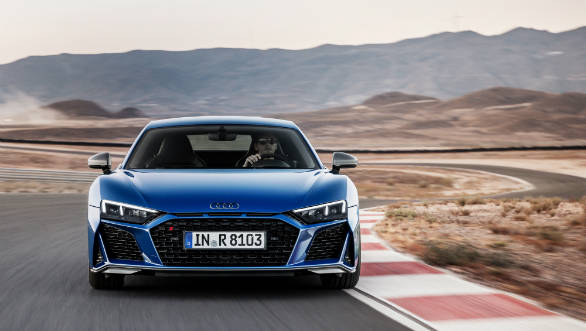
BD: So what's the product line going to look like for Audi in the coming months or years? Not just the E-tron and EVs but regular IC engined cars, like petrols and diesels. Diesels are obviously under the scanner. But what is Audi's product plan?
RA: It's a valid point you've raised. It's important that we make that shift. We do believe in petrolisation, we do think this is the future. That shift has already been happening over the past years. Diesel had a 90 per cent share in 2015 and 70 per cent in 2018, in 2019 this should drop to around 65 percent in 2019. By 2020, this will fall to 30 percent diesel sales. This means we believe in petrol, we also believe in alternative fuels, like the E-tron and electrification. There's a lot that will go in that direction. We are also accepting a volume consolidation or drop at the moment, we think this is the right way to gain momentum later on.
BD: What are the specific products that we can expect?
RA: The Q8, R8 and A8 will come. I can confirm they will come as petrol first. We do believe in petrol, and we will see what the market sentiment is. We want to stick with petrol and build market acceptance to it, in a top-down manner. We see demand too, especially in certain belts apart from NCR. This region has been petrol dominated market for the past three years. Even in Gujarat and South India, you see the tendency towards petrol now.
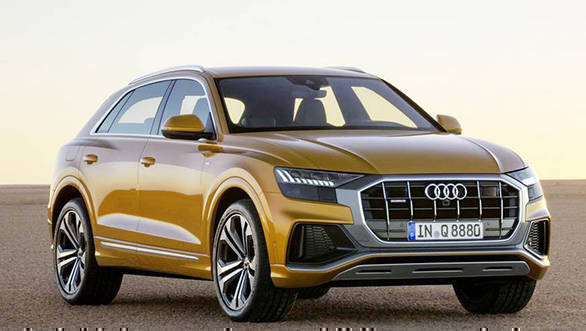
BD: Can you tell us a little more about the Q8? It's an entirely new segment, somewhere you haven't had a presence ye in global markets even. It's also positioned differently from what the nomenclature might suggest, its a more compact car than the Q7.
RA: Actually it has a very good combination of space and practicality. It is compact but still has an SUV-ish appeal. Why the Q8? The Q7 was typically positioned as a car that is chauffeur-driven. Quite often you seen owners drive the Q7 on their own, and they enjoy it. But in cities like Mumbai and Delhi, you want a car that is a little more compact, So, we see a demand for the Q8. The Q8 is actually a very good combination of self-driving and also chauffeur-driven cars. So you have actually both advantages with that car in one.
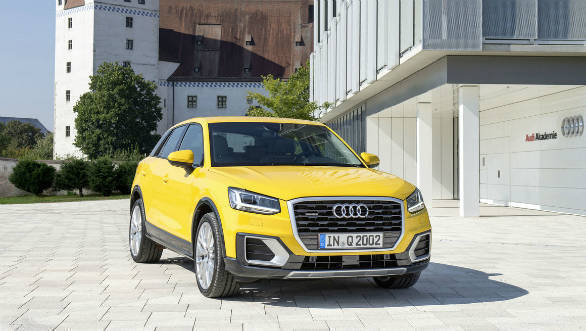
BD: Three years ago, I'd driven the Q2, a fantastic car. Back then I'd assumed it would work great globally and for India. Audi India was also hoping to bring it here. What happened to that plan?
RA: That plan is still not closed yet.
BD: So we can still expect that car here. Do you think the numbers could lead from there?
RA: I do believe there's a market for this. Looking at the shift from sedans to SUVs, three-four years ago, you had a 70 per cent share for sedans, which now is a minimum 50-50 share. This will further change to a 70-30 sedan SUV split, 2020 onward. I believe there is the space, between the Q3, Q5 and Q7,
Also see: Interview: Rahil Ansari on Audi India's future, industry trends and new products
Related Stories
Top Stories
Latest Videos
Most Popular
- Budget Sportbike Showdown: Kawasaki Ninja 500 vs Aprilia RS 457 vs Yamaha YZF-R3
- 2014 Triumph Daytona 675 vs 2024 Kawasaki ZX6R - A Decade of Evolution in Supersport Motorcycles
- Mumbai-Pune Expressway speed restrictions updated
- Nissan Magnite EZ-Shift review - is the AMT any good?
- Nitin Gadkari states that tax on Hybrids should be reduced to 12 percent in the coming future
